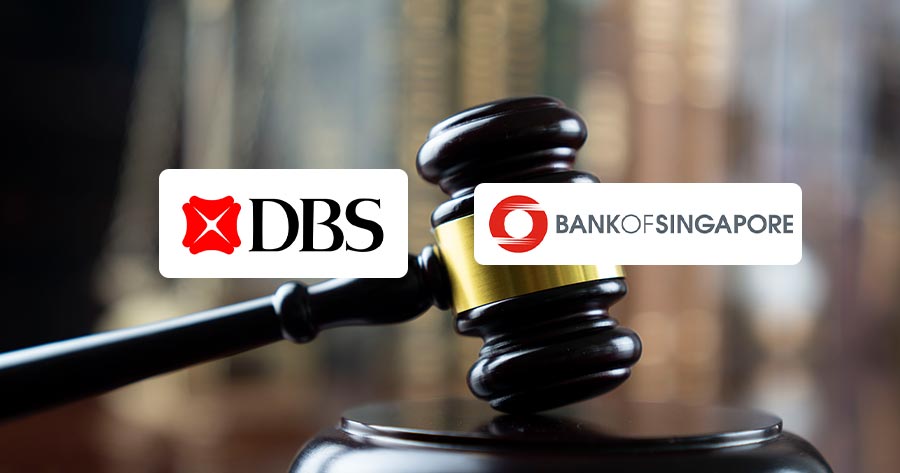Two of the largest local banks in Singapore have filed lawsuits against their debtor’s investment companies, who are suspects in a money laundering scandal worth more than S$1 billion.
DBS Group Holdings, the largest bank in Singapore, filed four lawsuits on 18 Aug against Aiqinhai Investment Pte’s director and sole shareholder Su Hai Jin is one of 10 people indicted in Singapore courts for money laundering via a form of security interest and document forgery.
While the second largest bank, Bank of Singapore, the company’s private sector banking division of Oversea-China Banking Corp (OCBC) filed suit on Jan. 7, 2022, against Xinbao Investment Holdings Pte, with one of the company’s two directors, Su Baolin, also among the accused, according to documents obtained by Bloomberg.
Local banks in Singapore, including Malaysia’s CIMB Bank Bhd, a subsidiary of Citigroup and Deutsche Bank AG, have all been linked to the money laundering suspects. Even real estate agents, precious metals traders and golf clubs in the city were also involved in this scandal. This raises questions about measures to prevent illicit money from flowing into these financial centers.
Both investment firms have registered offices in Singapore’s central business district, while both suspects have luxurious residences, which from the document states that all company funds are secured against bank facilities and the size of the risk was not specified.
DBS spokesperson stated that the firm will continue its work so that criminals will not be able to find a harbor in Singapore, although no names were given.
Su Haijin and Su Baolin were both detained. Prosecutors are requesting documents from at least 10 unnamed financial institutions related to the case. And all 10 arrested are scheduled to appear in the court.
When asked by Bloomberg, the Monetary Authority of Singapore said regulators are taking action against any financial companies whose funds may have been contaminated by the scandal. The central bank affirmed that it will take action against those violated anti-money laundering requirements and related regulations.





